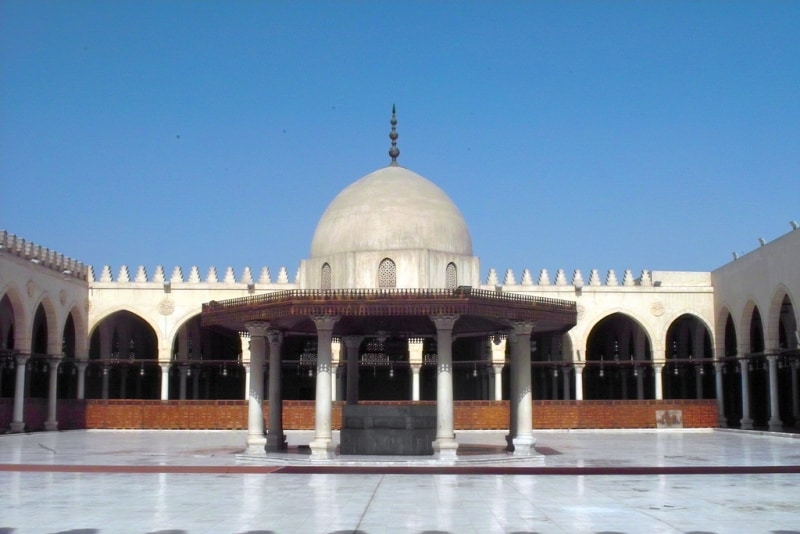The importance of reflecting deeply on hadith cannot be overemphasised and there are many commentaries that one can refer to for this purpose. In this short post, I would merely like to highlight a very profound point that can easily be missed in the latter part of a very beautiful and extremely important Hadith on the subject of intentions.
It goes as follows:
عَنْ أَمِيرِ الْمُؤْمِنِينَ أَبِي حَفْصٍ عُمَرَ. بْنِ الْخَطَّابِ رَضِيَ اللهُ عَنْهُ قَالَ: سَمِعْتُ رَسُولَ اللَّهِ صلى الله عليه وسلم يَقُولُ
” إنَّمَا الْأَعْمَالُ بِالنِّيَّاتِ، وَإِنَّمَا لِكُلِّ امْرِئٍ مَا نَوَى، فَمَنْ كَانَتْ هِجْرَتُهُ إلَى اللَّهِ وَرَسُولِهِ فَهِجْرَتُهُ إلَى اللَّهِ وَرَسُولِهِ، وَمَنْ كَانَتْ هِجْرَتُهُ لِدُنْيَا يُصِيبُهَا أَوْ امْرَأَةٍ يَنْكِحُهَا فَهِجْرَتُهُ إلَى مَا هَاجَرَ إلَيْهِ”.
Actions are only by intentions, and each man has only that which he intends. Whoever’s emigration is for Allah and His Messenger, then his emigration is for Allah and His Messenger. Whoever’s emigration is for some worldly gain which he can acquire or a woman he will marry, then his emigration is for that for which he emigrates.
Please note very carefully the repetition found in this sentence:
Whoever’s emigration is for Allah and His Messenger, then his emigration is for Allah and His Messenger.
This is a conditional statement, which usually takes the form “If A, then B”. For example, one would say, “If you study hard, then you will pass the exam.”
It would be very unusual to say something like, “If you study hard, then you study hard!”. Such a repetition would normally be considered as out of place.
However, in the aforementioned line from the above Hadith, the conditional statement is taking the unusual form of “If A, then A” rather than the expected “If A, then B.”
This repetition is actually made for a very important reason as the Prophet ﷺ was given concise and comprehensive speech (جوامع الكلم) and it wouldn’t befit his eloquence to make unnecessary repetitions.
Ibn Rajab, in his famous commentary of Imam An-Nawawi’s Forty Hadith, Jaami’ al ‘Uloom wal ‘Hikam, provides this beautiful explanation:
It is sufficient for [the one who migrated] as honour and as a boast that he attains what he intends of emigrating for the sake of Allah and His Messenger.
With this meaning in mind, [the Prophet ﷺ ] confined himself in the main clause of the conditional sentence to repeating the conditional clause word for word [“then his emigration is for Allah and His Messenger”], since the attainment of that which he intended by his emigration is the limit of what can be sought in this world and the next…
Subhanallah! Ibn Rajab explains that since the ultimate, the noblest and the highest of aims that one can possibly seek is Allah and His Messenger, then there can be no better thing and no alternative expression referring to something else that can be put in place of “Allah and His Messenger”. Hence, the conditional clause was repeated word for word in the main clause.
In contrast, when the Prophet ﷺ mentions emigration for worldly reasons, he reverts to the usual form of a conditional statement, “If A, then B”. And not only that, his expression, in this case, highlights the multitude of worldly aims that can possibly exist and their worthlessness in contrast to the exclusivity of seeking Allah and His Messenger and the nobility of such a beautiful aim. Ibn Rajab explains further:
In his words, “…to that which he emigrates,” there is contempt and scorn for that worldly matter which he seeks, since he did not mention it by name. Also, emigration for Allah and His Messenger is single without any multiplicity, and for that reason he repeated the main clause in the wording of the conditional clause. There are limitless types of emigration for worldly affairs: sometimes a person will emigrate in order to seek some permitted worldly thing, and sometimes for something forbidden. The individual worldly things which are intended by emigration are innumerable, and so for that reason he said, “Then his emigration is to that for which he emigrates,” meaning, “whatever it may be.”
May Allah purify our intentions and give us the tawfiq to seek the highest of aims.
Shafiul Huq is a Melbourne-based activist. He is also a student of Classical Arabic and Cultural Studies.
![]()















